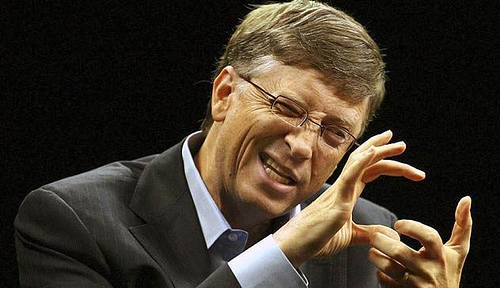Most poor people are in Africa, and their numbers are growing.
What it means: Bill Gates knows a thing or two about helping people. His and his wife’s charity, The Gates Foundation, has given away about $40 billion. That sounds like a lot of money, but Gates says it’s not enough and that global poverty - which has been falling for decades - might soon start rising again.
But is Gates right to suggest that we (or our governments, through foreign aid) should give poorer countries money at all? Some people say no, because aid makes poor countries too dependent on rich countries and encourages corruption. Others say that we should focus on people in our own country rather than helping foreigners. (That can be hard to justify when you compare not only the huge difference in living standards between rich and poor countries, but also the history of rich countries exploiting poorer ones through things like colonialism.)
Some economists think there are good reasons to help poorer countries beyond just being fair or nice. Aid money can be used to start businesses, build roads and generally grow poorer economies, which makes the whole world richer (although not everybody thinks that’s as good as it sounds). Aid can give people a better quality of life and make them less likely to want to move away, which is good news for people worried about high immigration. Aid can also combat infectious diseases, like Ebola, which can spread across borders. And aid can educate more people, one of whom could be the next Einstein. Or become the next Bill Gates.

